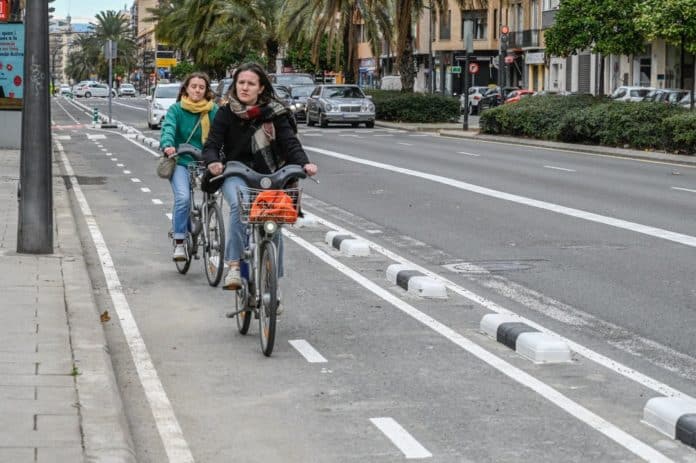The Compromís parliamentary group has presented a non-legislative proposal for the Valencian parliament to show its rejection of the dismantling of cycle routes announced by the governments of different localities in the Valencian territory governed by the right and the extreme right, such has happed in Elche.
As deputy Paula Espinosa points out “until September 22 we celebrate the European Mobility Week, immersed in this initiative that promotes sustainable travel we meet with municipal governments such as those of Elche and Valencia that have already announced the dismantling of cycle paths that had been built in recent years, a barbarity that goes against the transformation necessary to guarantee healthy and green municipalities, implementing infrastructures that promote sustainable mobility and discourage the most polluting means of transport”.
That’s why Compromís brings this issue to Les Corts, for which the parliamentary groups position themselves against the elimination of cycle lanes, while urging the Local Entities to maintain their commitment to the cycling infrastructures that have already been tendered.
According to Espinosa “it must be taken into account that many of these bike lanes, which they now intend to eliminate, were built thanks to the funding of the Next Generation EU Recovery funds, and the projects that make up the Transformation and Resilience Recovery Plan; funds that the Ministry of Ecological Transition has already warned that, in the event of dismantling them, the subsidies will have to be returned by the municipalities that carry out this reversal policy”.
“It is very worrying that the arrival of PP and Vox in the government of some councils is supposed to go against European policy and international commitments in terms of reducing emissions. The policies for the fight against climate change must involve the development of sustainable mobility, in which travel by bicycle plays a key role and is unfortunately being discouraged”, explained the Compromís parliamentarian.
With this initiative, the Council is urged to implement the necessary measures to facilitate travel on foot, by bicycle or other active means of transport, associating them with healthy lifestyles, as well as intra-urban green corridors which connect the green spaces with the large peri-urban green areas. And to develop an incentive program for companies, institutions and individuals that promotes cycling mobility in work centres and educational centres.
Finally, it is proposed that the Valencian government develop policies and programs in support of sustainable mobility so that cities with more than 50,000 inhabitants and those with more than 20,000 that exceed air pollution limits, enable low emission zones (ZBE) as established by the Climate Change and Energy Transition Law.





